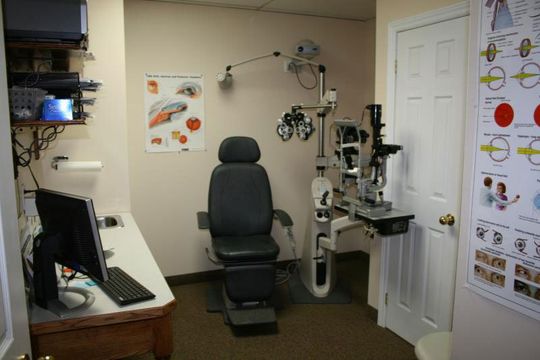Come See Us in Markham for Your Eye Care
Why have an Eye Exam ?
Most of us take our health for granted. We take our vision for granted, too. We think nothing of booking our dental checkups and cleanings, and go for our annual physicals, but give little thought to the health of our eyes. The truth is that many eye problems sneak up on us. Many eye diseases, like glaucoma, have no symptoms. Many systemic diseases, like diabetes, affect the health of the eyes. In most instances, loss of vision is gradual and goes unnoticed for some time before the situation is addressed, like the gradual loss of near vision that comes with middle age. Just like when the dentist says “no cavities” there is comfort in knowing that you see well and that your eyes are healthy.
Children’s Vision
It is said that 80 percent of learning is visual, and that one-in-six children has a vision problem that is significant enough to impair learning. Children younger than nine will rarely admit to difficulty with their vision even though they may have significant difficulty seeing clearly or comfortably. There has been many a parent surprised to learn their child needed glasses or had an eye coordination problem, when nothing was suspected. Be certain that your child sees as well as possible. Bring your child in for an eye exam. The examination is child-friendly (using pictures) and children can be seen as early as six months of age.
Myopia (near sightedness) is a growing problem among children. It causes not only blurred distance vision but increases the risk of eye diseases such as cataracts, glaucoma and retinal detachment later in life. New technologies are available to help to slow the progression of myopia. We can discuss these options with you to determine what is best for you and your child.
Seniors
Dry Eye Disease
- A gritty or sandy sensation
- Redness and irritation
- Burning and stinging
- Inconsistent blurry vision
- Watery eyes, tearing
- Contact lens intolerance
Eyeglasses
Sunglasses
- Cataracts and macular degeneration
- Snow blindness (inflammation of the cornea)
- Skin cancer of the eyelids
- Migraine trigger
- Pterygium and pinguecula (fleshy growths on the eye surface)
Contact Lenses
Laser Vision Correction and Refractive Lens Exchange
Many of our patients have a desire to have laser vision correction. After a comprehensive eye examination, and a discussion of your needs and expectations, we will be able to tell you if you are a suitable candidate for laser correction.
Refractive Lens Exchange is another refractive surgical option designed to eliminate or reduce the need for eyeglasses or contact lenses. It is a surgical procedure where the lens in the eye is replaced with an artificial intraocular lens. The procedure is very much like cataract surgery, without having a cataract. The intraocular implant lens is designed to eliminate your refractive error (need for glasses). Single vision or multifocal lens implants are available for consideration. The procedure is usually reserved for those individuals who can no longer read without the help of bifocal/progressive or reading glasses.
If the decision is made to proceed with refractive surgery, you will be referred to a trusted refractive surgery centre and will return to us for expert follow-up care.
Book Your Appointment
Contact info
Phone: 905-471-0592Fax: 905-471-9442
drlindakuhn@rogers.com
Dr. Linda Kuhn: Hours
Tuesday: 9:00 am - 5:00 pm
Thursday: 9:00 am - 5:00 pm
Friday: 9:00 am - 4:00 pm
Dr. Lynne Lu: Hours
Tuesday: 1:00 pm - 7:00 pm
Wednesday: 10:00 am - 7:00 pm
Friday: 9:30 am - 3:00 pm
Saturday (September to June)
9:00 am to 1:00 pm alternating weeks, please call.
Dr. Sapna Khatri: Hours
Monday: 9:00 am - 5:00 pm




